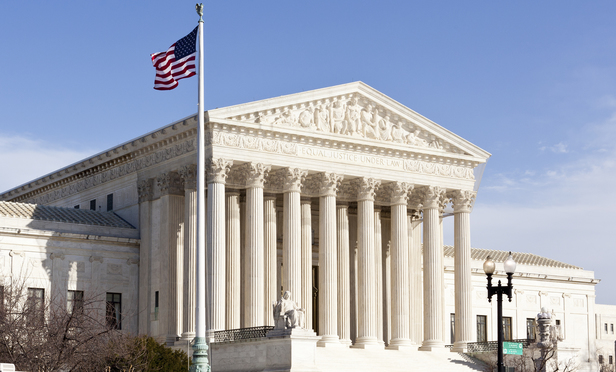In each term of the U.S. Supreme Court, there are a few cases that have the potential to bring sweeping change to the established legal landscape. One of the marquee cases of the current term—at least for those interested in securities litigation—is Halliburton Co. v. Erica P. John Fund Inc., which has the potential to alter the lucrative world of securities fraud class actions in major ways.
The case, also known as Halliburton II (the first Halliburton case from 2011 involved loss causation in class actions) and slated for oral arguments March 5, may endanger the Supreme Court’s earlier ruling in the 1988 Basic v. Levinson, which legitimized the “fraud on the market” presumption. This rule states that an efficient market reflects all of the information shareholders need about a publicly traded company in order to make decisions—meaning that plaintiffs do not have to prove their reliance on misstatements by the company to bring the class action. The Basic decision allowed plaintiffs in securities fraud cases to establish classwide reliance far more easily than in the past.
This content has been archived. It is available through our partners, LexisNexis® and Bloomberg Law.
To view this content, please continue to their sites.
Not a Lexis Subscriber?
Subscribe Now
Not a Bloomberg Law Subscriber?
Subscribe Now
LexisNexis® and Bloomberg Law are third party online distributors of the broad collection of current and archived versions of ALM's legal news publications. LexisNexis® and Bloomberg Law customers are able to access and use ALM's content, including content from the National Law Journal, The American Lawyer, Legaltech News, The New York Law Journal, and Corporate Counsel, as well as other sources of legal information.
For questions call 1-877-256-2472 or contact us at [email protected]





